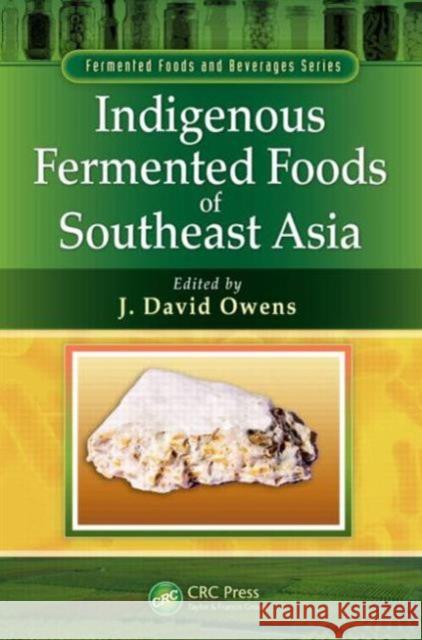Indigenous Fermented Foods of Southeast Asia » książka
Indigenous Fermented Foods of Southeast Asia
ISBN-13: 9781439844809 / Angielski / Twarda / 2014 / 453 str.
Brings Together Current Knowledge and State-of-the-Art Information on Indigenous Fermented Foods Fermented foods and beverages span a range of root crops, cereals, pulses, vegetables, nuts, fruits, and animal products. Southeast Asia has a long history of utilizing fermentation in the production and preservation of foods, and is widely recognized for its prominent use. Indigenous Fermented Foods of Southeast Asia examines some indigenous fermented foods of Thailand, Vietnam, Indonesia, Malaysia, and the Philippines, focusing on the chemical, microbiological, and technological factors associated with their manufacture, quality, and safety. This text establishes a need for an adequate understanding of the fermentation process to ensure safe and reliable practices, as well as the consistent production of a quality product. The authors describe the production, microbiology, biochemistry, nutritional value, and dietary roles of a wide variety of indigenous fermented foods of Southeast Asia. Emphasizing the microbiological and biochemical processes in fermentations and examining the factors that influence the development of the characteristic microflora and chemical changes induced, they accurately describe each process and critically evaluate the roles of microbes in the fermentation. The classification of products is based on their microbial ecology (i.e. the predominant microbes involved), and the text includes examples of every major category of fermented food. The book covers tempe, starter cultures, sweet/sour/alcoholic rice and cassava fermentations, alcoholic fermentations, soy sauce, Bacillus fermentations, and lactic acid bacterial fermentations of vegetables, durian fruit, rice noodles, meats, and sea foods. This book answers a series of basic questions addressing:
- Dominant/desired microbes
- Suitable factors in processing and the environment
- Commonly present microbes
- Compounds utilized as major carbon and energy sources
- Sources of fermentable carbohydrates
- Main biochemical activities and chemical changes
- True yield of product per kilogram of initial raw materials
- Possible hazards associated with a product
- How possible hazards may be minimized or eliminated
- Research needs and opportunities











